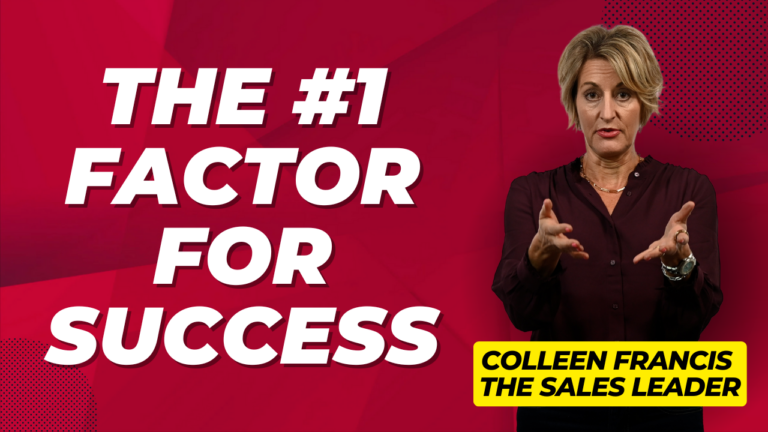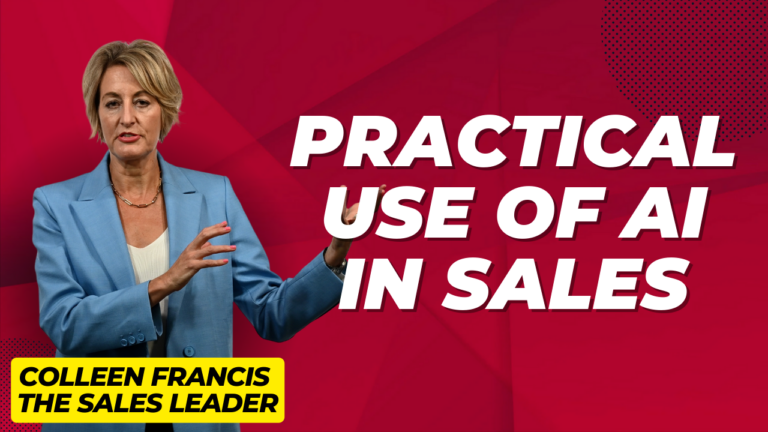Sales leaders, how do you effectively build organizational confidence?
The ability to draw regularly from a deep well of confidence is a top predictor of successful performance. Experts know this and top-ranked salespeople do, too.
But confidence isn’t just important at a personal level. It matters as much at an organizational level, too. Here’s why: confidence is a transferable feeling. So, it should come as no surprise that the word, borrowing from its Latin roots, loosely means to “believe with trust.”
Sure, you trust in yourself…and you’ve worked hard to earn the confidence of your primary contact within your customer’s organization.
But your work must never stop there!
You must also ensure that with every contact you make in your customer’s organization, you regularly give them plenty of good reasons to trust in your ability to solve their business problems. Otherwise, you’re one staffing change away from having to start all over—a painful and incredibly risky outcome especially in today’s marketplace.
How to Skillfully Build Organizational Confidence
1. Be a Known Quantity
Periods of organizational change (like today) are dangerous times for sellers—especially those who have not broadened their network. Put yourself in your customer’s shoes in those circumstances. How in the world can they have confidence in making the decision to keep doing business with you…if they’ve never heard of you before? Avoid that terrible fate by making yourself a known quantity across your customer’s organization. Ensure they have persistently overwhelming evidence to support the case for why you continue to be the smart choice.
2. Balance Intangibles with Tangibles
Intangibles focus on what your customer can feel is true, and tangibles focus on what can be measured. It’s your job to show both and find a balance. And remember, there is no intangible value that you cannot monetize. Build organizational confidence by monetizing the risk posed by switching to your competitor. Define in measurable terms what reduced workplace stress looks like by sticking with your solution (e.g., lower absenteeism, lower turnover, etc.). Show them how their decision to choose you (or to stay with you) translates into saved time and money.
3. Amplify Your Story Internally
I’m a longtime fan of customer testimonials. And it’s not only because they use social proof to persuasively make the case for why you’re the best choice in a competitive market. It’s also because testimonials can boost your broadcast signal within an organization. It gives you (and your primary contact) a platform to tell others about their success. And it leaves a profound impression when others inside your customer’s organization, for instance, see their VP of Marketing featured in a case-study video talking about how essential you are to their success. It’s your job to share those success stories internally. Don’t expect your customer to do that. They’re busy doing other work.
4. Get Peer Power Working for You
Each potential contact within your customer’s organization looks to the examples set by their peers to inform the decisions they’re going to make. When they see others enjoying positive outcomes in working with you, that’s a powerful, persuasive cue for them to want the same. You must show that you’re more than somebody’s supplier; you’re everybody’s trusted resource. That means investing time in developing case studies showing how your knowledge and willingness to serve others translates into positive outcomes at a corporate-wide scale. There’s power in numbers. Get them working for you first by getting them talking about you.
Confidence and trust are interwoven feelings in all human relationships—including those we forge in business. You must always be working at boosting the signal of those good, transferable feelings that first helped you earn a toehold in your customer’s organization. Create a climate throughout your client’s organization where everyone can believe—with trust—in who you are and what you do. No one else will do that for you…but that careful thinking and hard work will pay dividends to you year after year.





